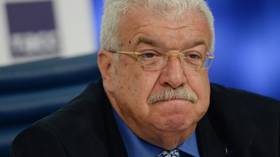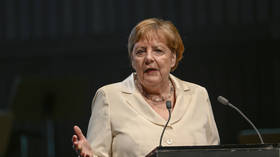Nine Russians in custody in Belarus over post-election protests
Nine Russians are among those detained in the Belarusian capital Minsk during Sunday’s mass rallies against Aleksandr Lukashenko’s victory in the presidential election.
According to preliminary results, the incumbent president got just short of 80 per cent of the vote.The Russian embassy in Minsk has sent the Belarusian foreign ministry a written request for a meeting with the detained Russian nationals. One of them is Aleksandr Astafiev, a journalist from St. Petersburg. However, according to Interfax news agency, he was not on a business trip in Belarus. Together with many others, he was detained on December 19. He only managed to get in touch with a correspondent from Russia’s Ekho Moskvy radio early on Tuesday. He sent a text message to his colleague saying he had been deprived food for two days and that he could only drink tap water. On the second night behind bars he and others were only allowed to sleep for three hours. “Police have been treating us like animals,” reads one of the messages. Astafiev has been taken to court several times. He was accused of taking part in an unsanctioned gathering and failing to comply with police demands — charges that he denied. He will spend ten days in jail. Another detained Russian journalist is Irina Khalip from Novaya Gazeta newspaper and wife of the opposition presidential candidate Andrey Sannikov. Anastasia Rybachenko, an activist of Russia’s Solidarity opposition movement is also being held in Minsk. She did not take part in the protests, Interfax says, citing Solidarity’s executive director. She was reportedly detained when she stood up for a group of people being beaten by security forces.On Sunday, Belarusian police also attacked an RT crew, injuring two cameramen. Hundreds of protestors were detained and got from five to 15 day prison sentences. Involvement in an unsanctioned rally can carry a sentence of up to 15 years in jail.Also on Tuesday, Interfax reported that Belarus might ban several opposition movements which went out onto the streets. The statement came from Justice Minister Vasily Golovanov, who noted, though, that the ban will only apply if there is proof that the executive bodies of those organizations officially decided to take part in the protests.For now the ministry does not have such compromising information about any of the opposition movements, Golovanov added, but the investigation will continue.












